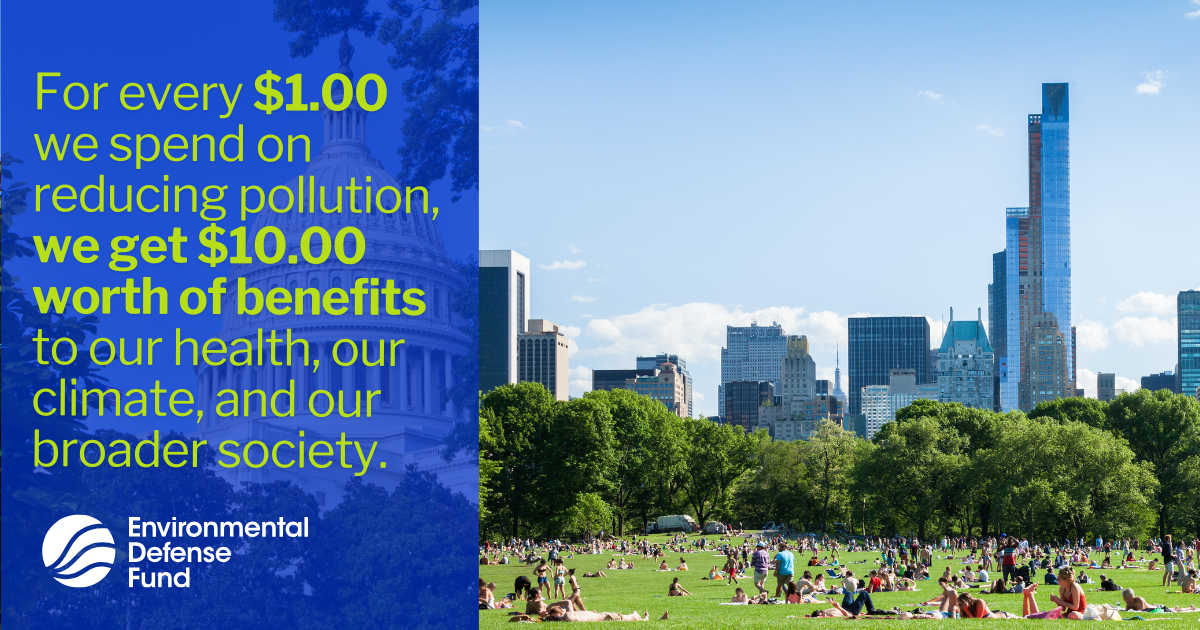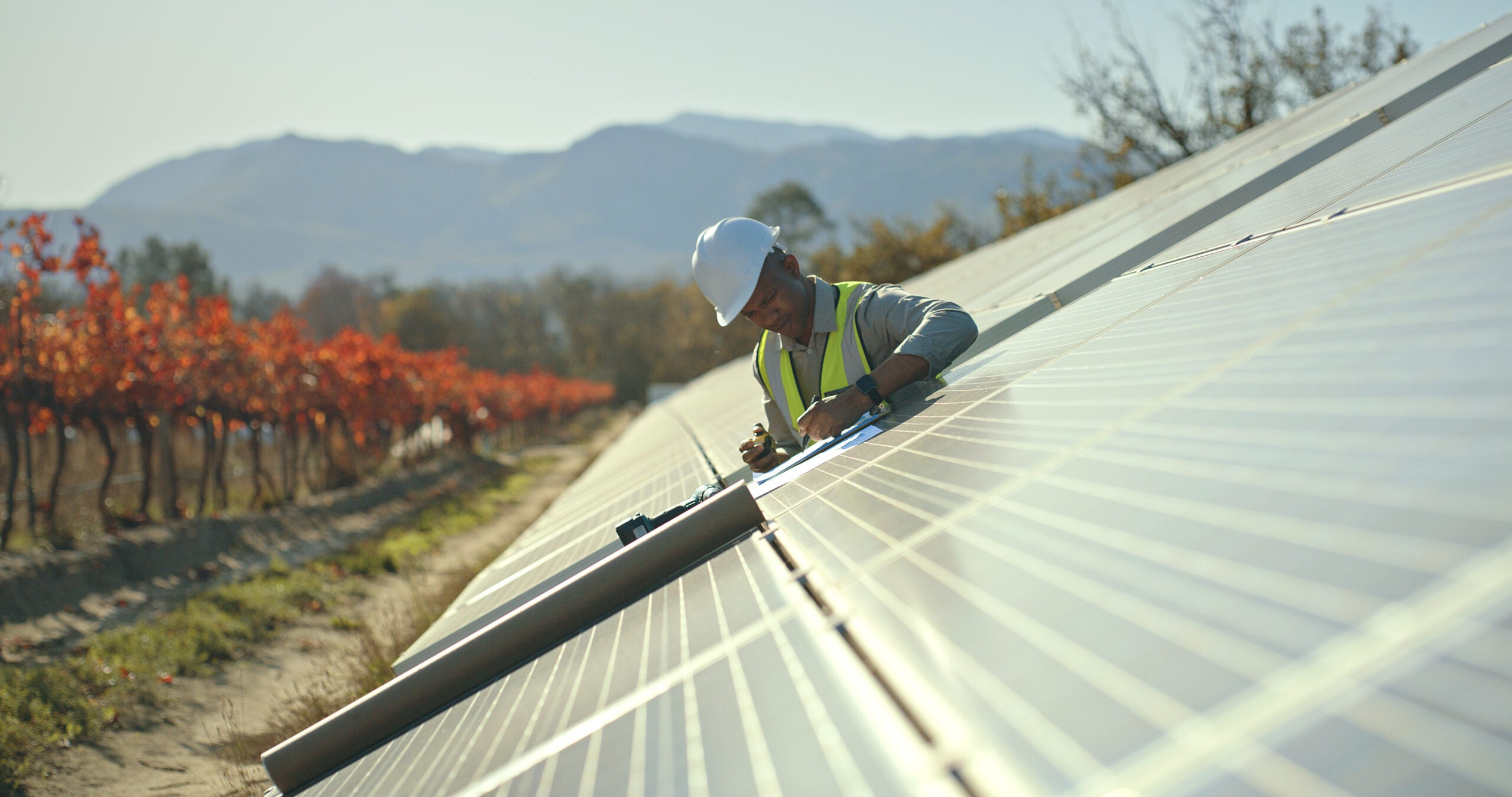Follow the Plastic Bag Example, Nudge Polluters to Pay
(This post was first published on EDF Voices.)
Nudge is the best kind of book. It presents the type of head-slappingly obvious solutions to public policy problems that make you wonder why you needed a book to tell you about them in the first place. Place the veggies before the French fries in the cafeteria, and people will eat more greens. Enroll employees into retirement programs with the option of opting out rather than in and they’ll save more as a result.
Such nudges are the best kinds of policy interventions: minimum intrusion, maximum freedom of choice, maximum relative impact. But one area in which Nudge comes up short is global warming. Putting smiley faces on your electricity bill as a reward for using less electricity than your neighbor, something oPower has done with utilities around the country, helps bring down electricity use by 1 to 3%. Better than zero, but not the solution by a long shot.
That solution would be making polluters pay: putting a price on carbon dioxide through a direct cap or tax on carbon pollution. Cass Sunstein, who wrote Nudge with Richard Thaler, says as much in his latest piece on the topic. He laments the fact that we don’t seem to be able to get these kinds of taxes passed, and then adds a few items to his running list of things we can do, all under the broad heading of setting “clean-energy default rules”: Change the default printer setting to “print on front and back,” and people will. Enroll people into programs where they spend extra for clean energy (with the option of opting out), and 90% will choose to stick with the clean energy.
All these proposals represent the best of what nudges ought to be. Policymakers need to set defaults either way. So set them in the way that goes furthest toward achieving your goal. Just that there’s still a big gulf between the policies we know are necessary and what appears to be doable.
The plastic bag solution
But there is one policy that seems to bridge the gap between the type of non-intrusive nudges Sunstein champions and the type of policies he knows are ultimately necessary to do something about global warming. They’re called bag taxes.
In 2002, Ireland started charging shoppers 15 eurocents a plastic bag. The result: bag use plummeted 90 percent. That’s a billion bags a year.
In 2010, Washington, D.C., began charging 5 cents per disposable bag, paper or plastic. As a result, plastic bag usedeclined 80 percent within a year by some estimates.
These fees are tiny. Compared to the $100 worth of groceries you’ll be carrying home in your bags, they might as well be zero. The point is that they are not. The fees are big enough to change the default behavior of shoppers. A few pennies (and the odd public information campaign) are all it takes to motivate shoppers to bring reusable bags to the store.
It’s quite a leap from plastic bags to carbon prices. The principle is the same: It’s the price that counts—a price that is directly connected to an action. Change the action (stop using plastic bags) and you avoid the fee. Similarly, increase the price of carbon, watch carbon pollution fall. This price-up-demand-down relationship is so well established, it’s one of the very few actual “laws” economists have. Violations are tough to find. Plastic bags and carbon certainly don’t violate this common sense principle.
Bag fees and carbon prices have this important feature in common. They don’t just nudge, they also charge consumers for the cost of their—our—actions. For carbon dioxide, there are plenty of studies that estimate the cost to society of this type of pollution. The right price for each ton of carbon dioxide would be at least about $20. Given the fact that the average American emits his body weight worth of carbon dioxide every day and a half, that comes out to about $1 per day. Double it to account for the fact that there are plenty of damages we haven’t yet incorporated in the official number, and doing something serious about global warming is still a bargain at $2 per person per day.
As an insurance policy against the worst effects of global warming, that’s tiny. Never mind how small a price, though, the politics of actually doing it are tricky, to say the least. The plastic bag lobby just isn’t as important as the fossil lobby. And bag fees can be implemented on the local level. A carbon price can’t. It requires Congressional action, a seeming oxymoron these days. Even with carbon, though, states—if not cities—can lead the way. Look no further than California and its comprehensive cap-and-trade system. It limits carbon pollution with a firm, declining cap, giving Californian businesses maximum flexibility in how to make their operations more efficient and innovate their way out of the high-carbon, low-efficiency bind. That ought to be a template for the nation.
Meanwhile, we can do a lot worse than look to plastic bag fees as a model for the kinds of policies that we know are necessary to tackle global warming. Cass Sunstein, the co-author of Nudge, and Cass Sunstein, the policy analyst calling for a price on carbon pollution, would approve.












